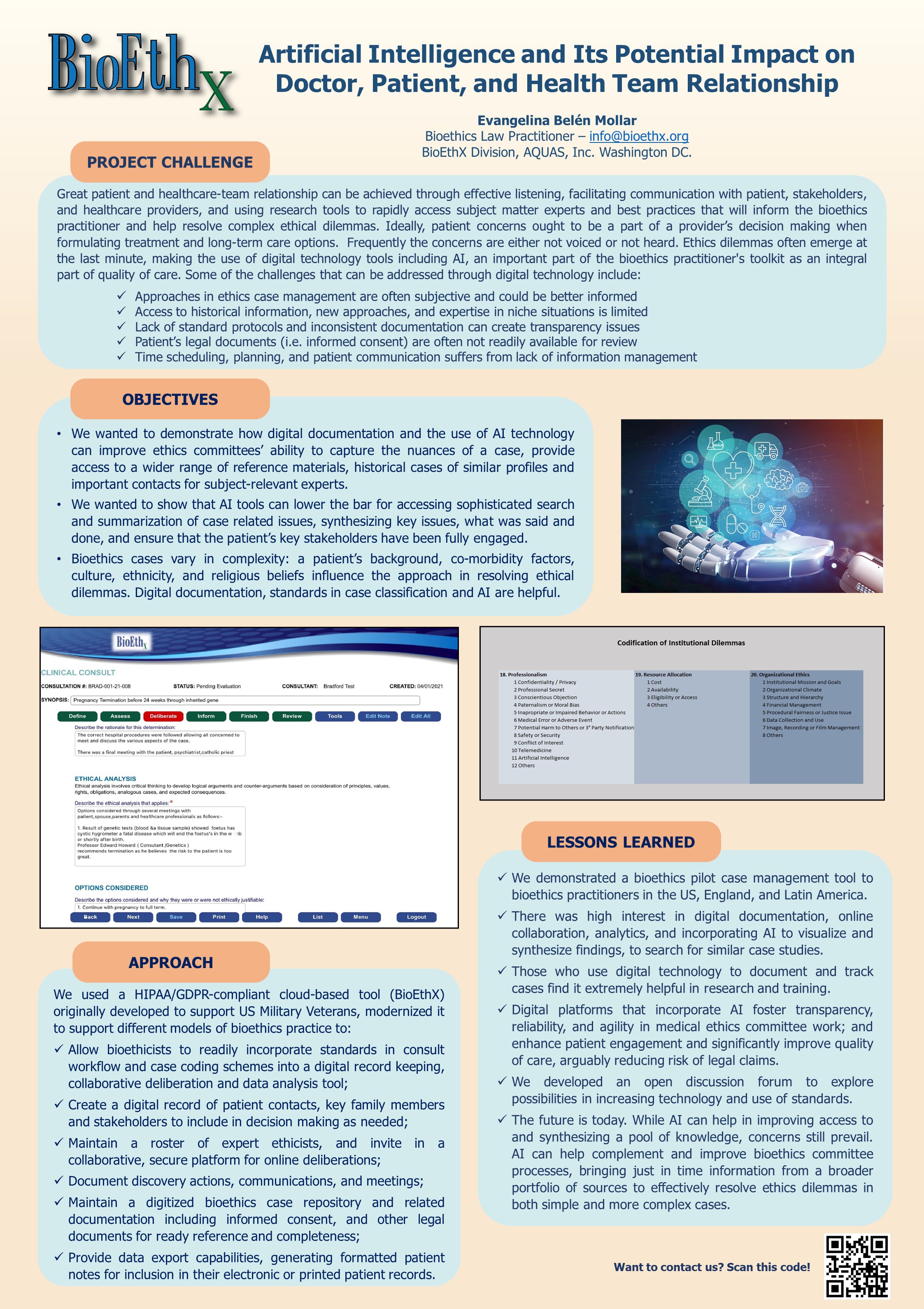Artificial intelligence and its potential impact on the doctor-patient-health team relationship

Abstract
A better patient-healthcare team relationship can be achieved by leveraging technologies that make communication easier from the patient’s viewpoint and access to a broader pool of knowledge for the healthcare provider. These technologies are part of the Artificial Intelligence portfolio of tools. AI can complement the patient-healthcare relationship by providing greater information on similar cases. A critical part of the healthcare team is the medical ethics consultant or committee member.
In medical ethics, digital platforms and AI tools can support oversight, prevention and intervention when the patient or family members disagree with the medical options presented. Digital tools that help medical ethics practitioners track and assess medical dilemmas are extremely useful in creating a reference of what was said and done, and key stakeholders for the patient. Documenting assessment, investigation and communications is key in a resolution to a medical ethics dilemma. In this case, AI tools are used by the medical ethics practitioner or the ethics review committee to identify previous similar dilemmas and examine how they were addressed and with what degree of success. Bioethics cases can vary in complexity: the background, mental capacity, co-morbidity factors, culture and ethnicity, religious beliefs influence the approach to an ethical dilemma.
Bioethics committees, often called upon to deliberate and propose solutions to medical ethics dilemmas, stand the most to gain from digital documentation and AI aided research
Digital platforms that incorporate artificial intelligence provide ethics committees with well delineated processes and checklists, foster transparency, reliability and agility in medical ethics committee work, enhance patient engagement and significantly improve quality of care, arguably reducing risk of legal claims.
The future is today. While AI can help in improving access to care and the health care team’s pool of knowledge, ethical issues still prevail and must be addressed. AI cannot replace the healthcare provider’s patient-centric approach but can help reduce patient wait times to resolve a medical concern, complementing and improving the patient-doctor relationship, ensuring ethical oversight and personalized care that doctors and healthcare teams can provide.
